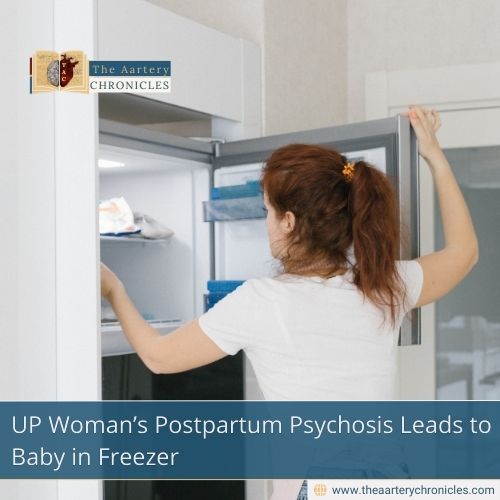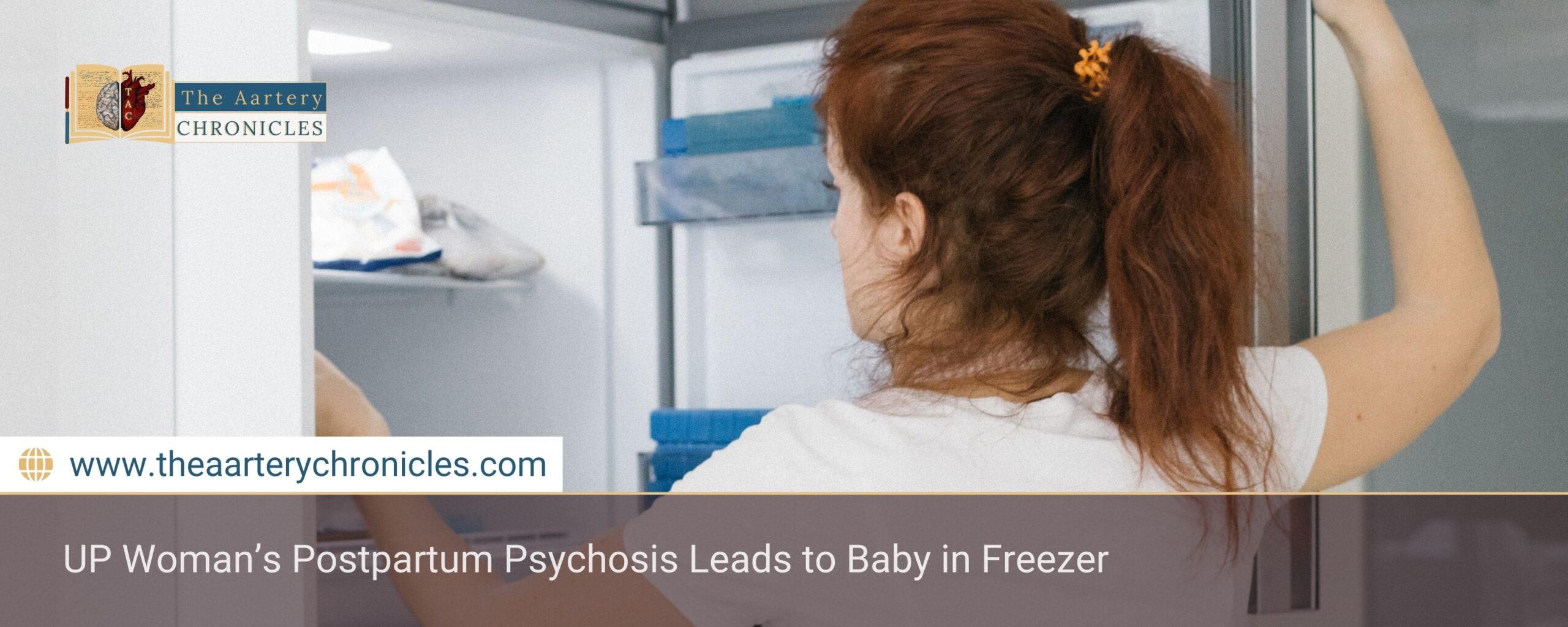

UP Woman’s Postpartum Psychosis Leads to Baby in Freezer
A shocking incident in Moradabad, Uttar Pradesh, has brought urgent attention to the dangers of postpartum psychosis, a rare but severe mental health disorder after childbirth. A 23-year-old mother, recently diagnosed with the condition, placed her 15-day-old baby inside a refrigerator before falling asleep. The infant survived after his grandmother heard the cries and rescued him in time.
What Happened in Moradabad?
A young woman from Jabbar Colony, Moradabad, was living with her husband, a brass worker, and her in-laws. On September 5, her newborn baby was crying a lot and not sleeping. In a disturbed state, she took the baby to the kitchen and placed him inside the refrigerator. After that, she went back to her room and went to sleep.
A little while later, the baby’s loud cries woke up his grandmother. She followed the sound, opened the fridge, and found the child inside. She quickly pulled him out, and the family rushed the infant to a nearby doctor. The doctor confirmed that the baby was safe and unharmed
When the family asked the mother about it, she calmly replied, “He was not sleeping, so I kept him in the fridge.” Her unusual answer shocked everyone. At first, the family suspected that something supernatural was behind her strange behaviour, so they consulted a local faith healer. But when she did not improve, relatives advised proper medical help. She was then admitted to a hospital, where doctors diagnosed her with postpartum psychosis.
Understanding Postpartum Mental Health
Mental health issues after childbirth occur on a spectrum:
- Baby Blues: Many new mothers feel emotional ups and downs, get irritated easily, or cry often during the first couple of weeks after giving birth. This is common and usually goes away on its own.
- Postpartum Depression: In some women, symptoms progress into persistent sadness, anxiety, or loss of interest in the baby and daily life.
- Postpartum Psychosis: Rare but extremely serious, this condition causes mothers to lose touch with reality. It can include hallucinations, delusions, confusion, and impaired judgment, which may put both mother and baby at risk.
In this case, the Moradabad mother showed classic symptoms of postpartum psychosis, including disturbed sleep, confusion, and loss of awareness of reality.
Why Awareness Matters
Globally, the World Health Organisation estimates that nearly 20% of women in developing countries experience postpartum depression, and a smaller fraction develop psychosis. In India, studies suggest postpartum depression affects around 22% of mothers, yet awareness remains low.
In many communities, unusual behaviour after childbirth is often mistaken for “tantrums” or even “evil spirit possession.” Families may first turn to faith healers instead of medical professionals, delaying crucial treatment. This is exactly what happened in the Moradabad case.
Conclusion
The Moradabad incident highlights the urgent need to recognise and treat maternal mental health disorders early. Families, doctors, and communities must remain vigilant after childbirth and encourage women to seek professional help if they show unusual or disturbing behaviour.
Source: Inputs from various media Sources
I’m a pharmacist with a strong background in health sciences. I hold a BSc from Delhi University and a pharmacy degree from PDM University. I write articles and daily health news while interviewing doctors to bring you the latest insights. In my free time, you’ll find me at the gym or lost in a sci-fi novel.
- Priya Bairagi
- Health News and Updates,People Forum
- 9 September 2025
- 13:00








